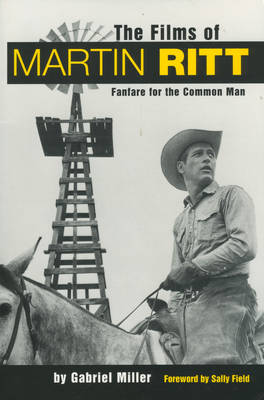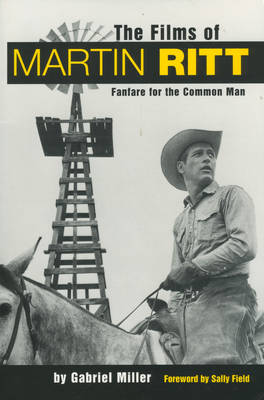
- Retrait gratuit dans votre magasin Club
- 7.000.000 titres dans notre catalogue
- Payer en toute sécurité
- Toujours un magasin près de chez vous
- Retrait gratuit dans votre magasin Club
- 7.000.0000 titres dans notre catalogue
- Payer en toute sécurité
- Toujours un magasin près de chez vous
59,45 €
+ 118 points
Description
The first in-depth critical analysis of Ritt's films and a justification of his renown as America's premier social-issues filmmaker In a Hollywood career that spanned more than thirty years, Martin Ritt (1914-1990) directed twenty-six films. Among them were some of Hollywood's most enduring works -- Hud, Hombre, The Spy Who Came in from the Cold, The Molly Maguires, The Front, and Norma Rae. In addition to displaying a passionate commitment to social issues, Ritt's body of work represents a sustained exploration of the American myth and American national character. This study of his films shows how his work articulates the communal, agrarian ideal and its perversion as industrialism and urbanism have denatured the landscape. Encompassing a hundred years of American life, these films follow the common man through the chronology of social history, including the arrival of the railroads in the West, coal mining in nineteenth-century Pennsylvania, Jack Johnson's rise as the first black heavyweight champion of the boxing world, the television blacklist, spying and the Cold War, trade unions, and the war in Vietnam. The subjects he treats project a cultural framework for examining what America means as a nation and as an experience. The sixties was the decade of Ritt's most sustained achievement. This period culminated in his masterpiece, The Molly Maguires, perhaps the finest film ever made on the subject of American labor. In the first detailed analysis of this great realistic film The Films of Martin Ritt: Fanfare for the Common Man shows that its greatness lies in Ritt's complex interweaving of love and friendship, the labor struggle, the story of the immigrant dream, and the ideal of upward mobility. The book includes analyses of all twenty-six films, including such early works as Edge of the City and The Long Hot Summer, as well as such later successes as Norma Rae, Sounder, and Murphy's Romance. Ritt's work in theater, notably in the Group Theatre, which he joined in 1937, and his being blacklisted from television during the 1950s, informed his directorial philosophy throughout his career. Many recognize him as America's finest director of social films. Gabriel Miller is chair of the English department at Rutgers University, Newark. He is the author of Screening the Novel (1980), John Irving (1982), and Clifford Odets (1989).
Spécifications
Parties prenantes
- Auteur(s) :
- Editeur:
Contenu
- Nombre de pages :
- 256
- Langue:
- Anglais
Caractéristiques
- EAN:
- 9781578062775
- Date de parution :
- 09-07-14
- Format:
- Livre broché
- Format numérique:
- Trade paperback (VS)
- Dimensions :
- 150 mm x 229 mm
- Poids :
- 362 g

Les avis
Nous publions uniquement les avis qui respectent les conditions requises. Consultez nos conditions pour les avis.






